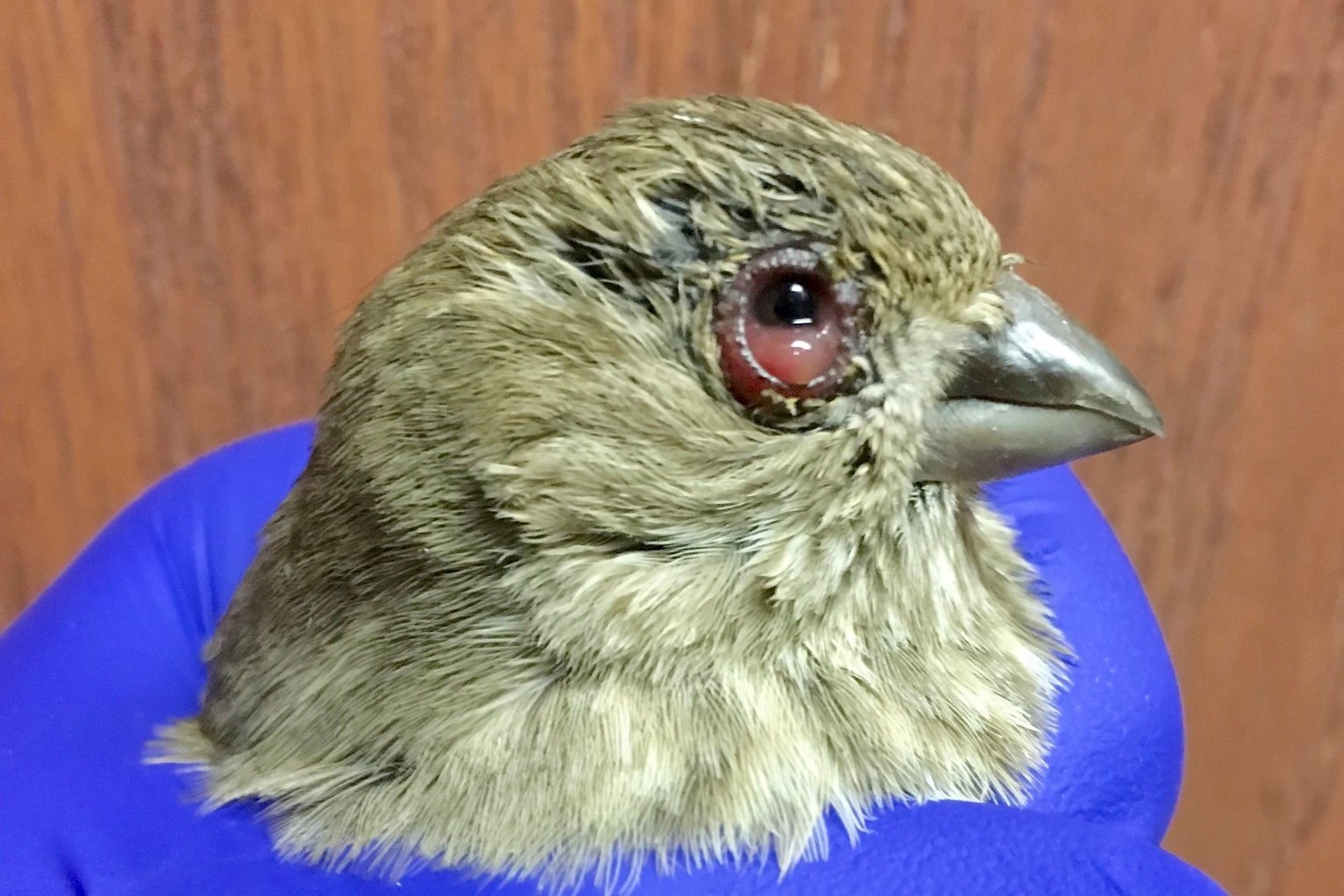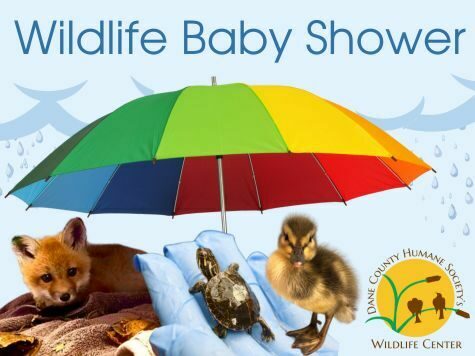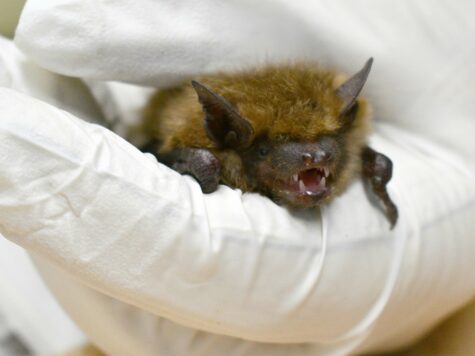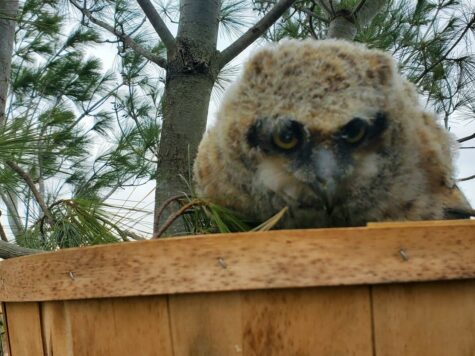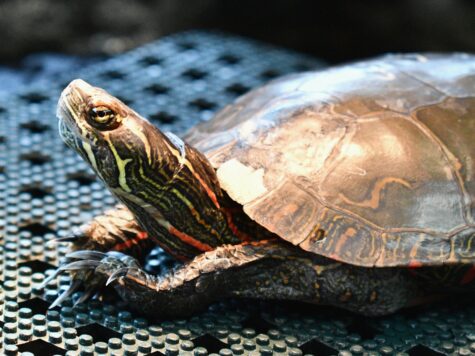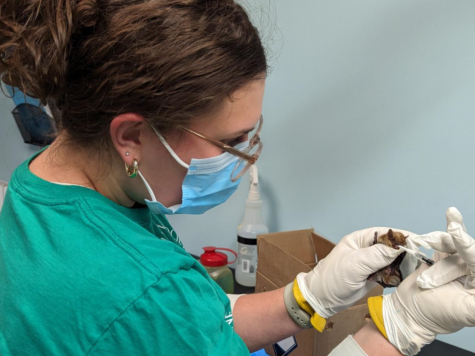Unfortunately fall is not only time for peak leaf colors, it is also peak season in bird populations for a certain disease: avian conjunctivitis. Highly contagious bacteria cause a bird’s eyes to become red, swollen, runny, and crusty. While it primarily affects house finches, it can also affect other species such as American goldfinches, evening grosbeaks, and purple finches. Conjunctivitis is not just irritating for birds—their eyes can become completely swollen and crusted over to the point where they are unable to find food and shelter, or avoid predators.
Providing feeders and baths for birds is a great way to attract and appreciate local wildlife, but also can create an environment where it is easier for disease to spread as they gather to use the same food source. Because conjunctivitis is easily spread on surfaces, one important way to prevent transmission is by cleaning and disinfecting your bird feeders regularly!
Below are some steps for disinfecting bird feeders and baths:
- Remove all dirt and other debris by washing the feeder or bath thoroughly with hot, soapy water.
- Gather either a large enough container/tub/sink to submerge your feeder, or a spray bottle.
- Create a diluted bleach solution by adding 1 part bleach to 32 parts water. This equals a ½ cup of bleach to one gallon of water, or 1 tablespoon of bleach to 16 ounces of water. *Diluted bleach is only good for 24 hours, so be sure to make a new batch each time you need to disinfect your feeders.
- Allow the feeder or bath to soak in the bleach solution for a full 10 minutes. If you are spraying down your feeder, make sure it stays wet for the entire 10 minute disinfection time.
- Once disinfected, thoroughly rinse and dry your feeder or bath before refilling with new seed or water.
- Disinfect at least once or twice per month (more often is better), and if you notice any birds showing signs of infection wash your feeder immediately.
Thank you for helping to keep your local birds healthy! If you have a bird at your home with conjunctivitis and are able to contain it, please call Dane County Humane Society’s Wildlife Center at (608) 287-3235.
If you find an ill, injured or orphaned wild animal you believe is in need of assistance, learn more here.
